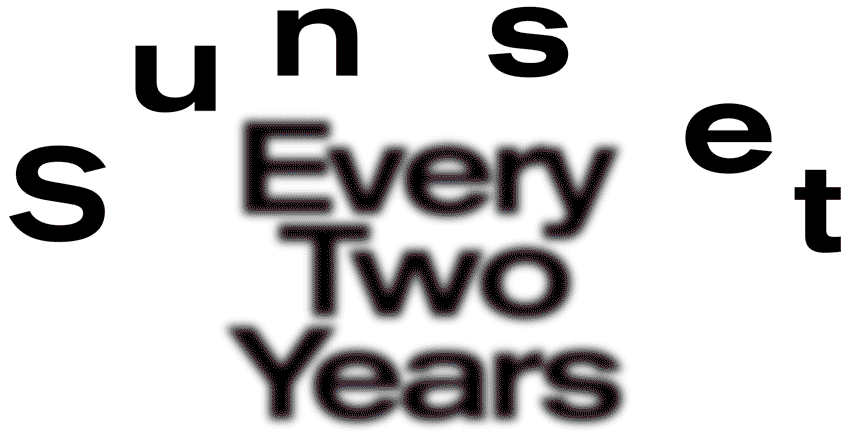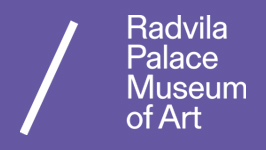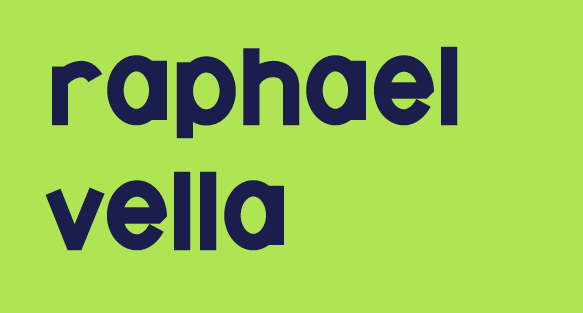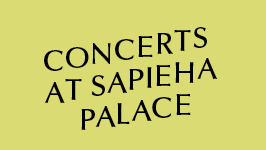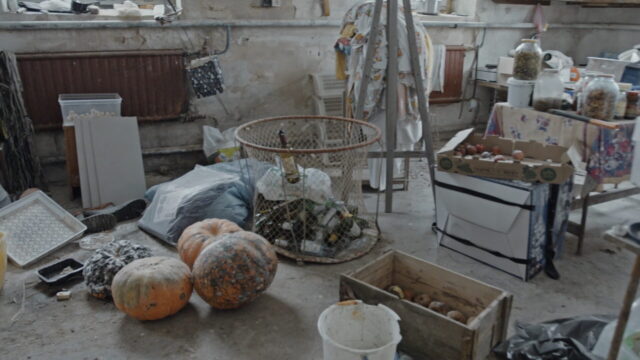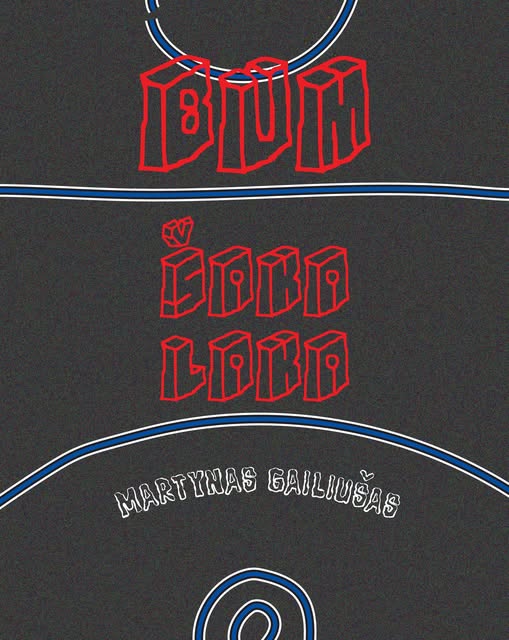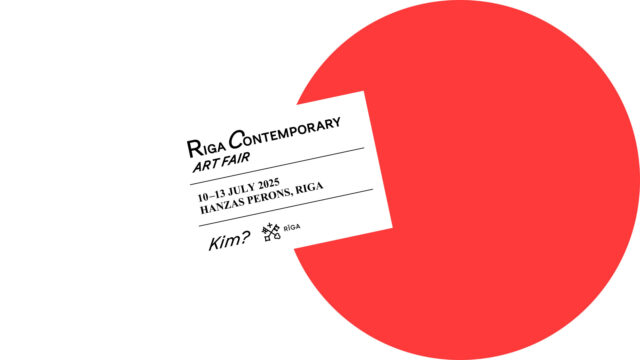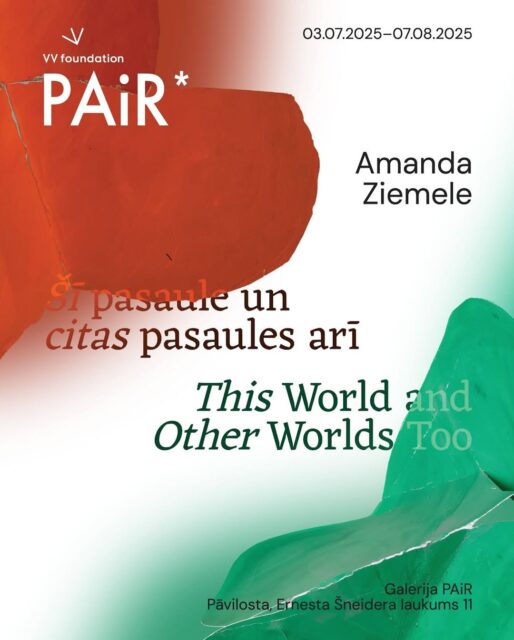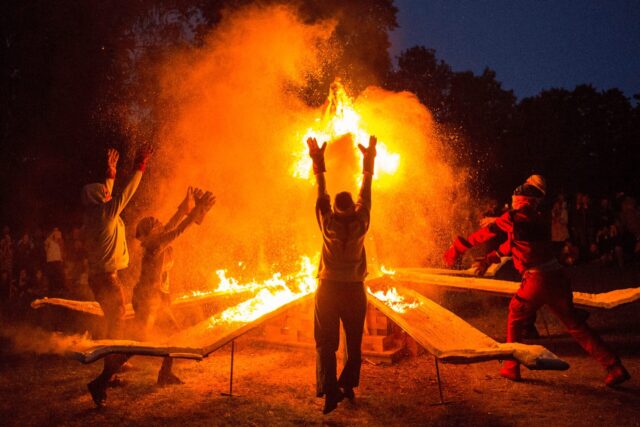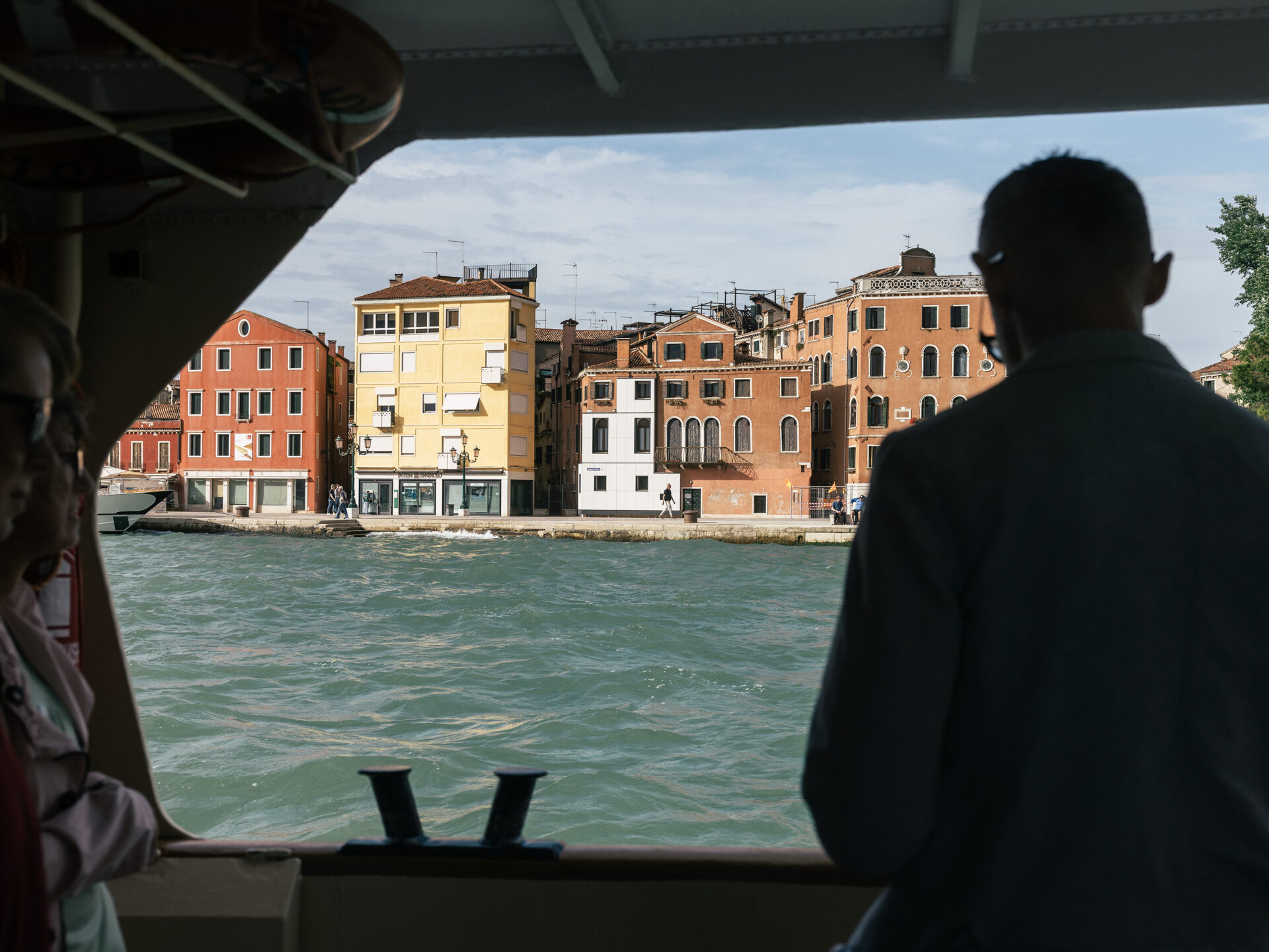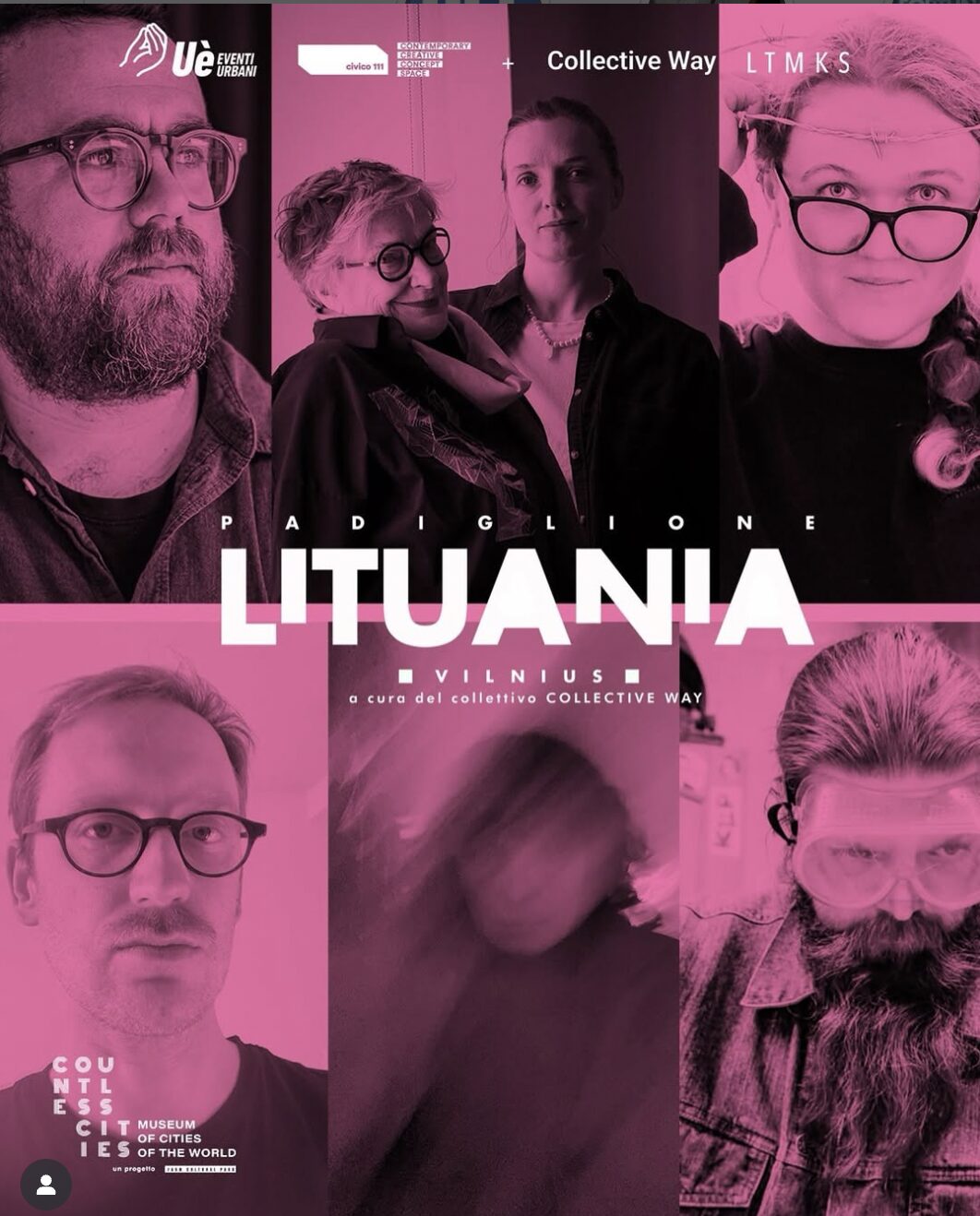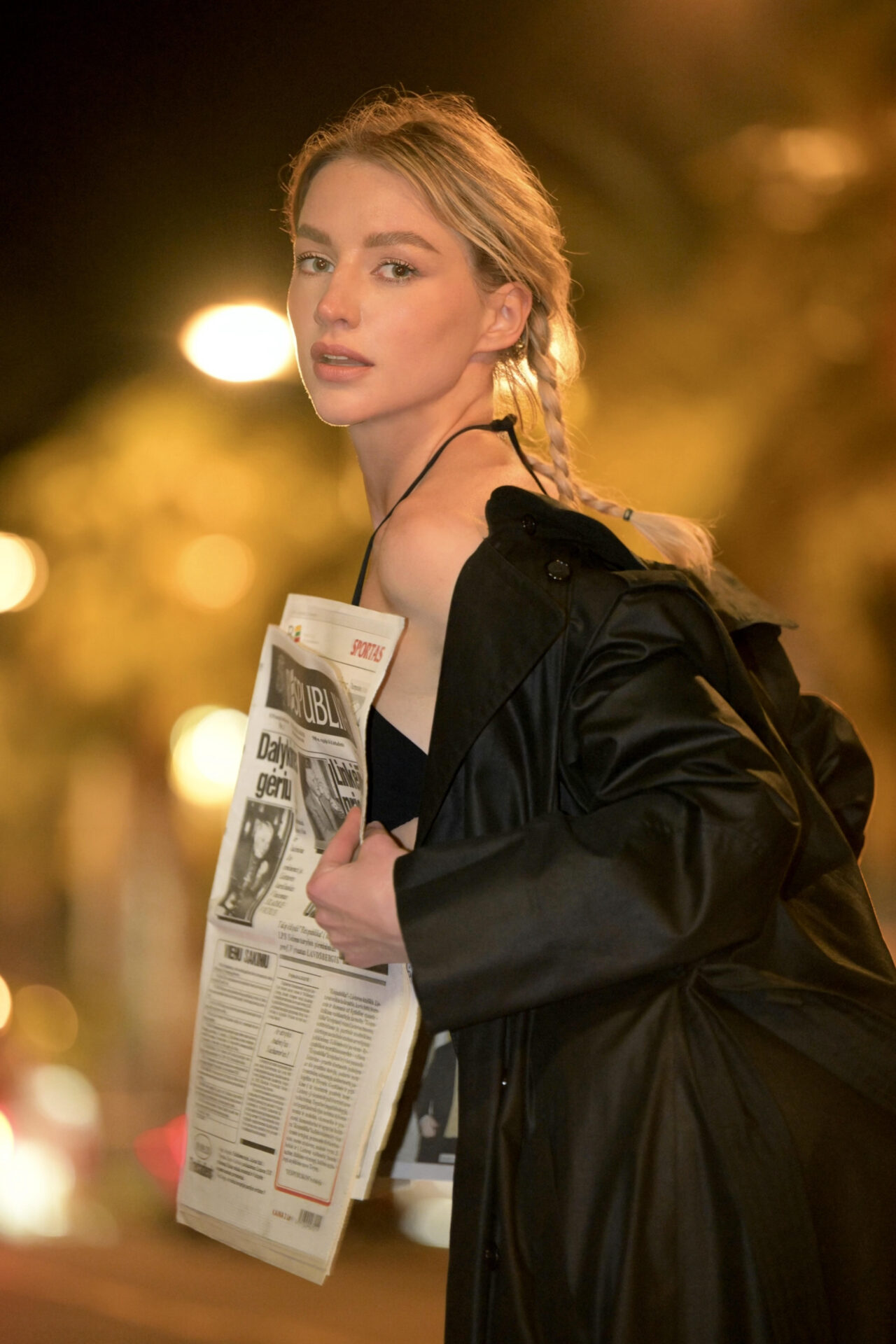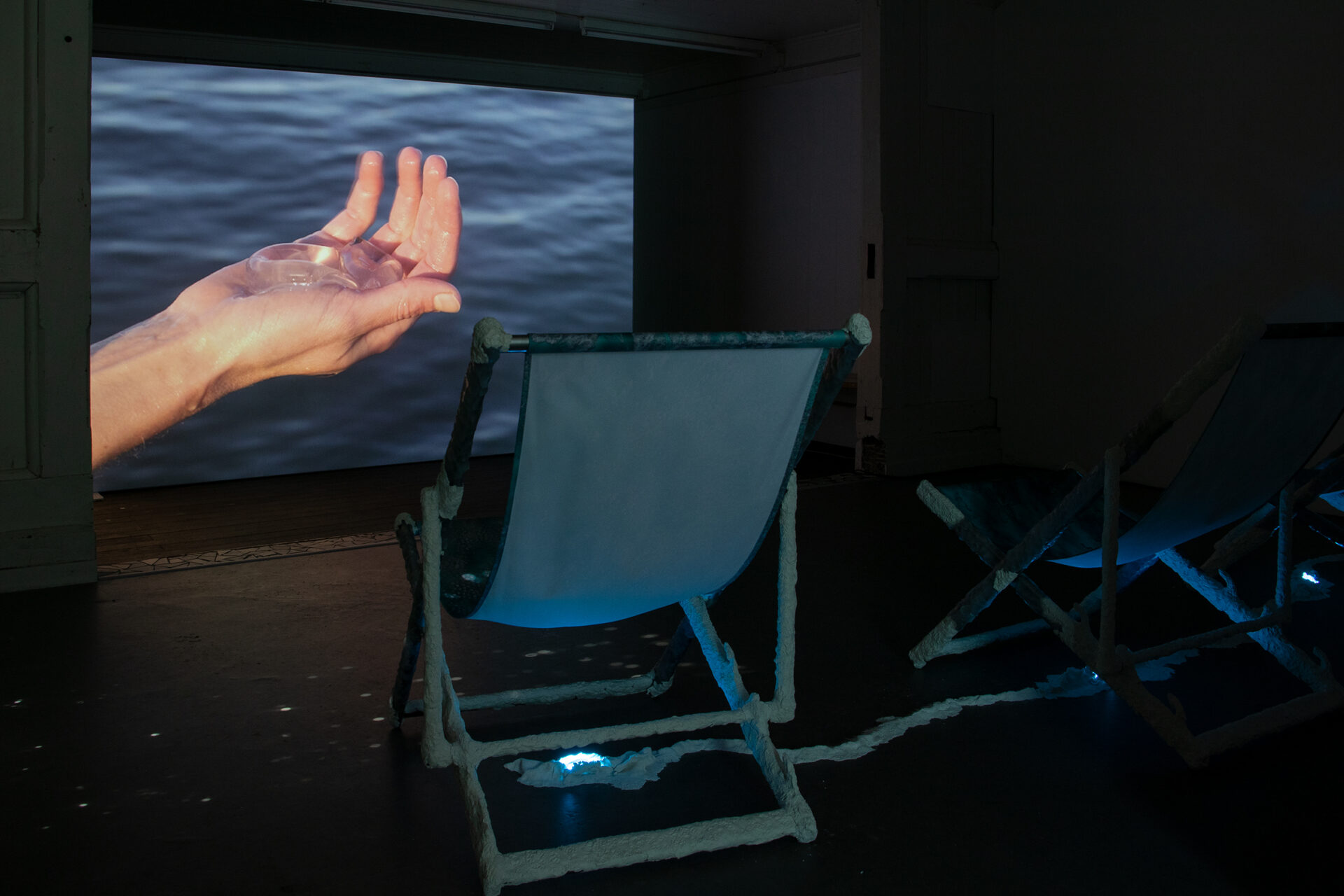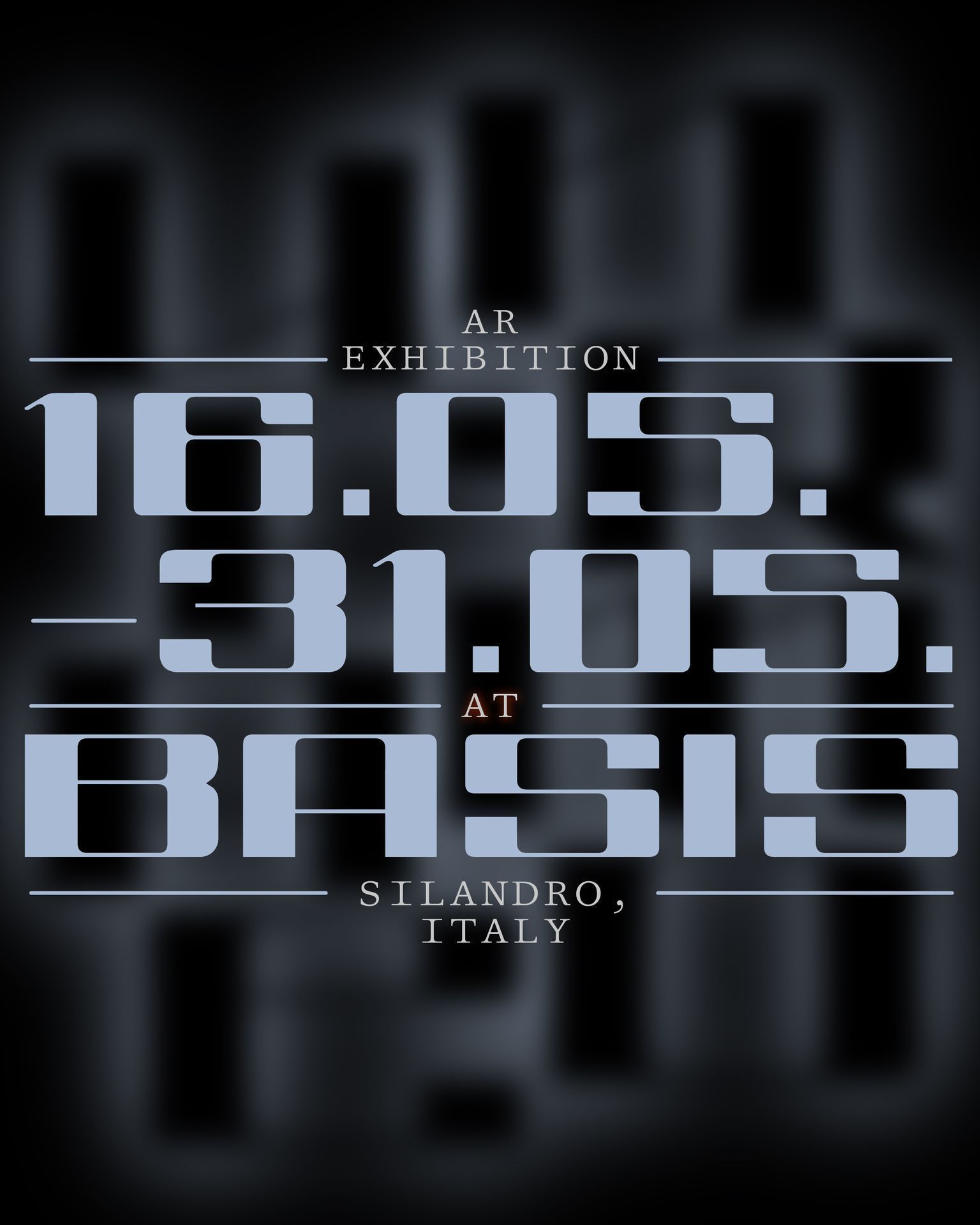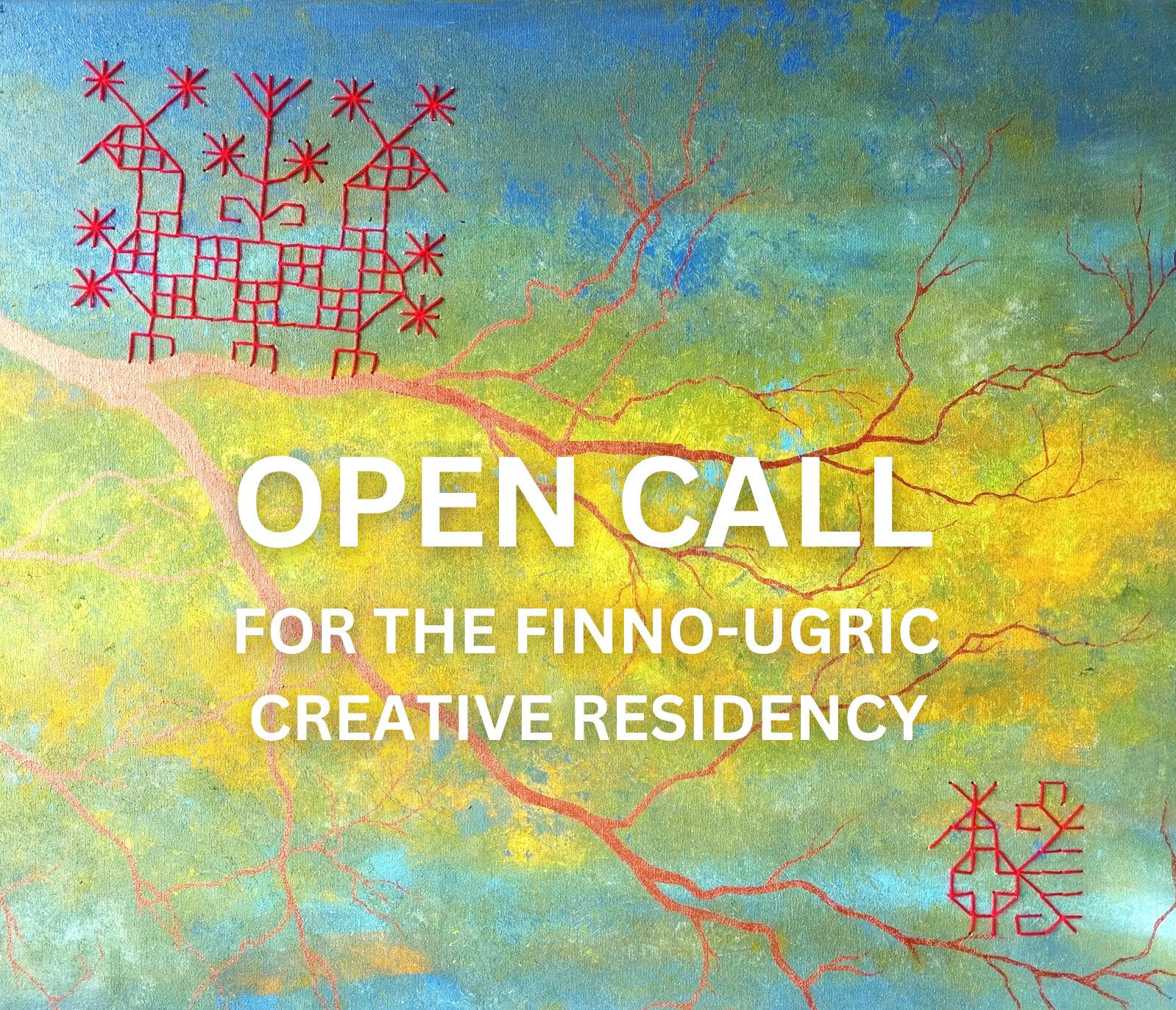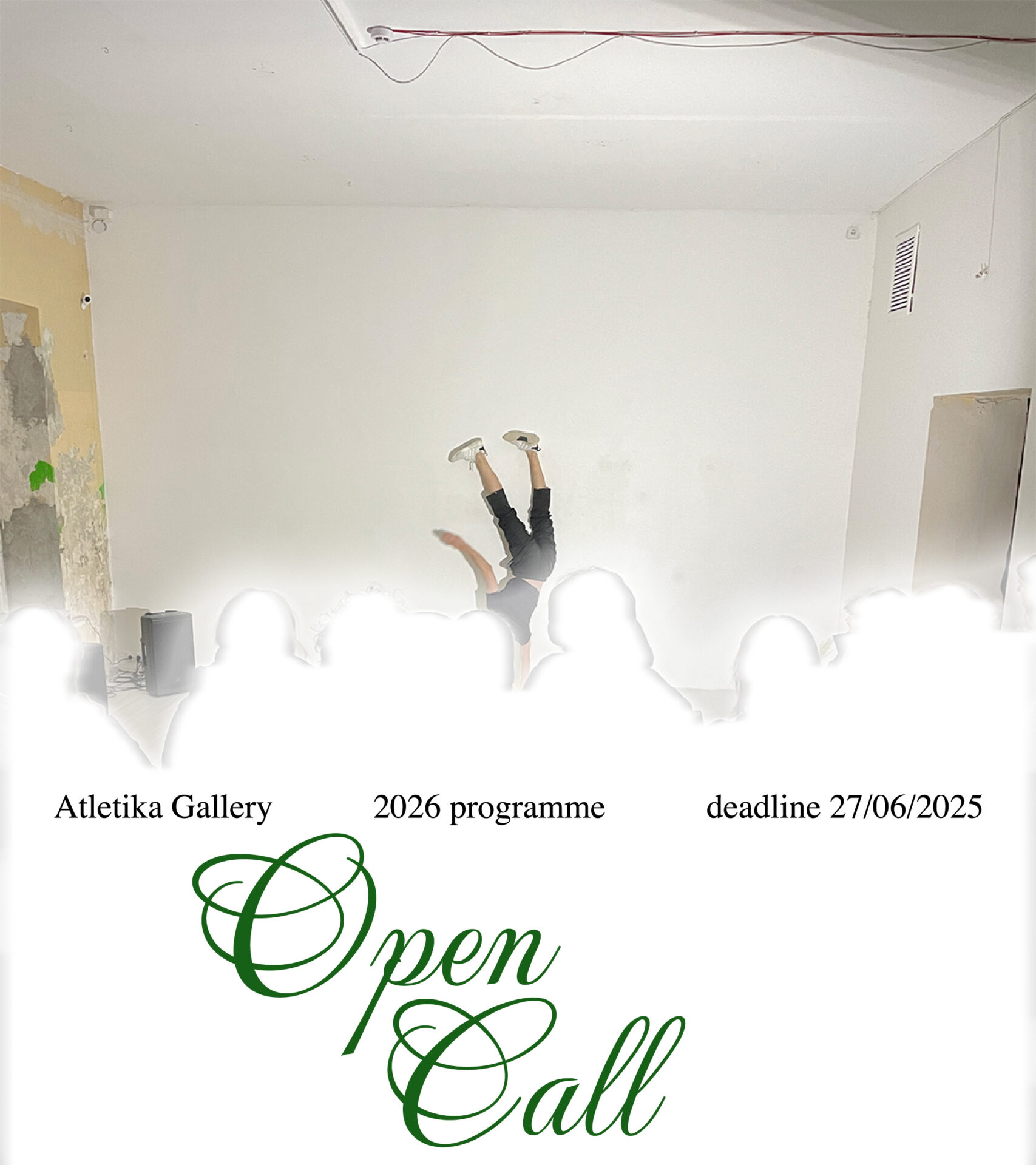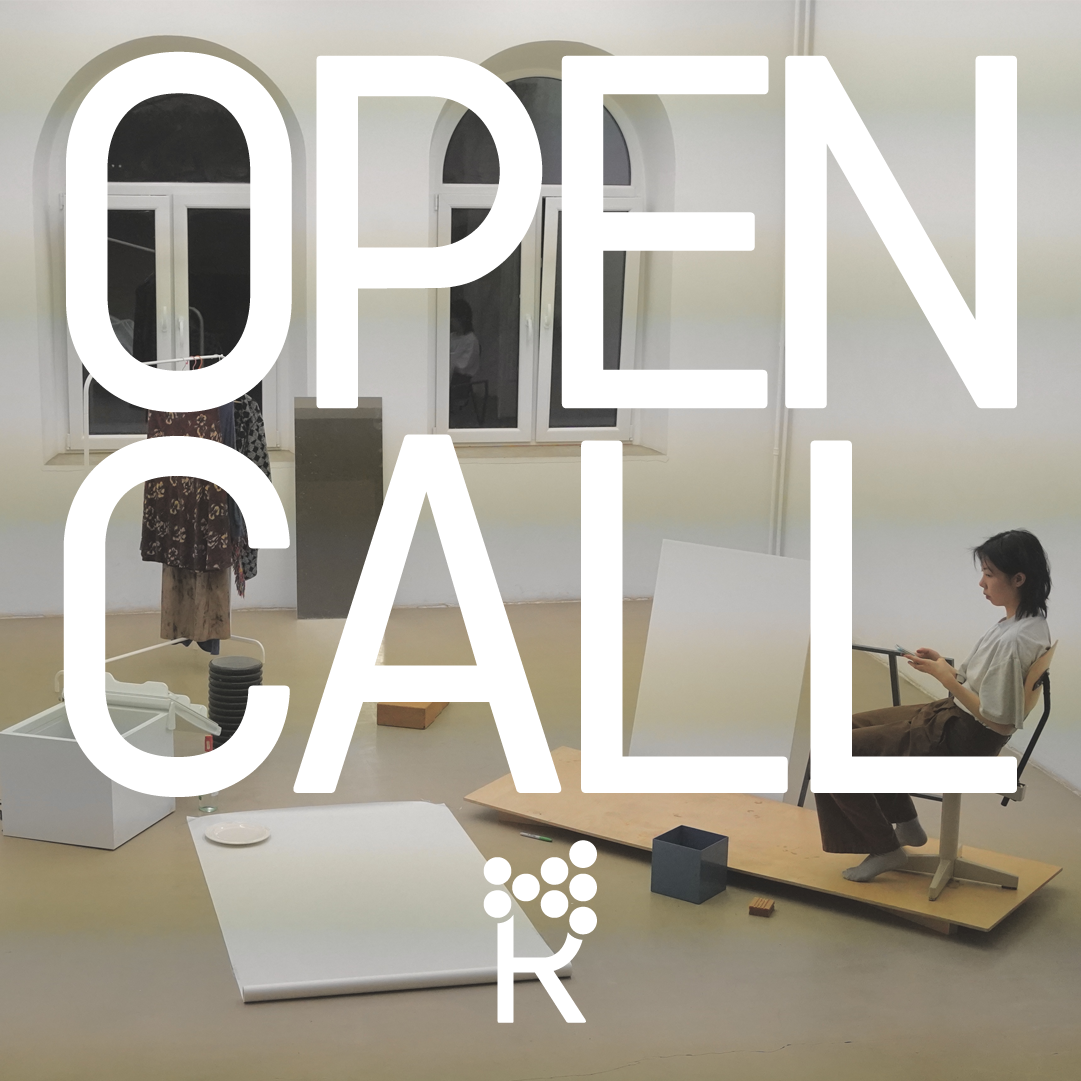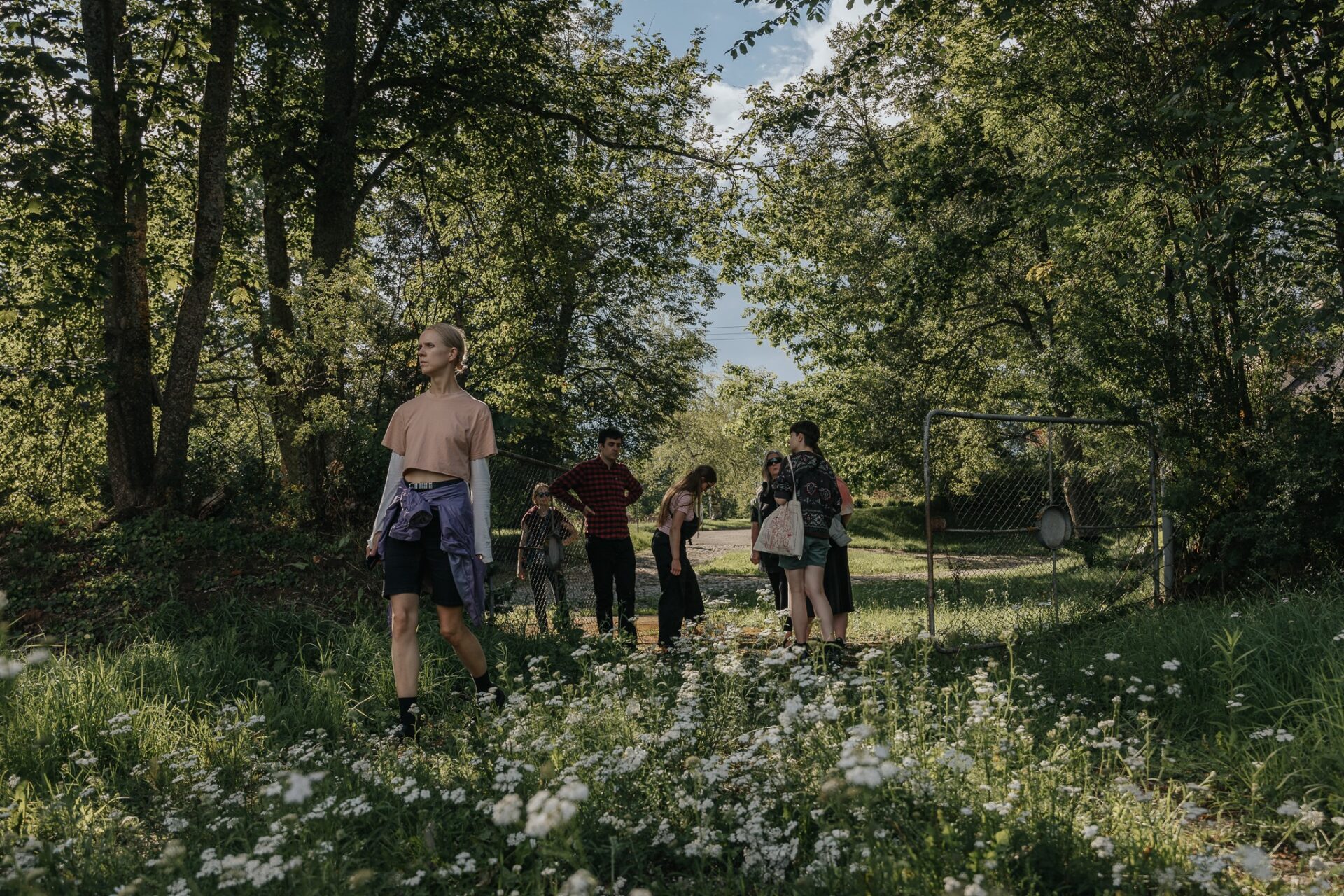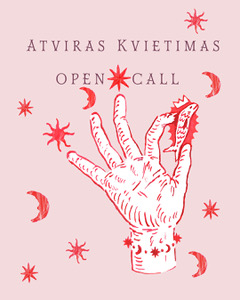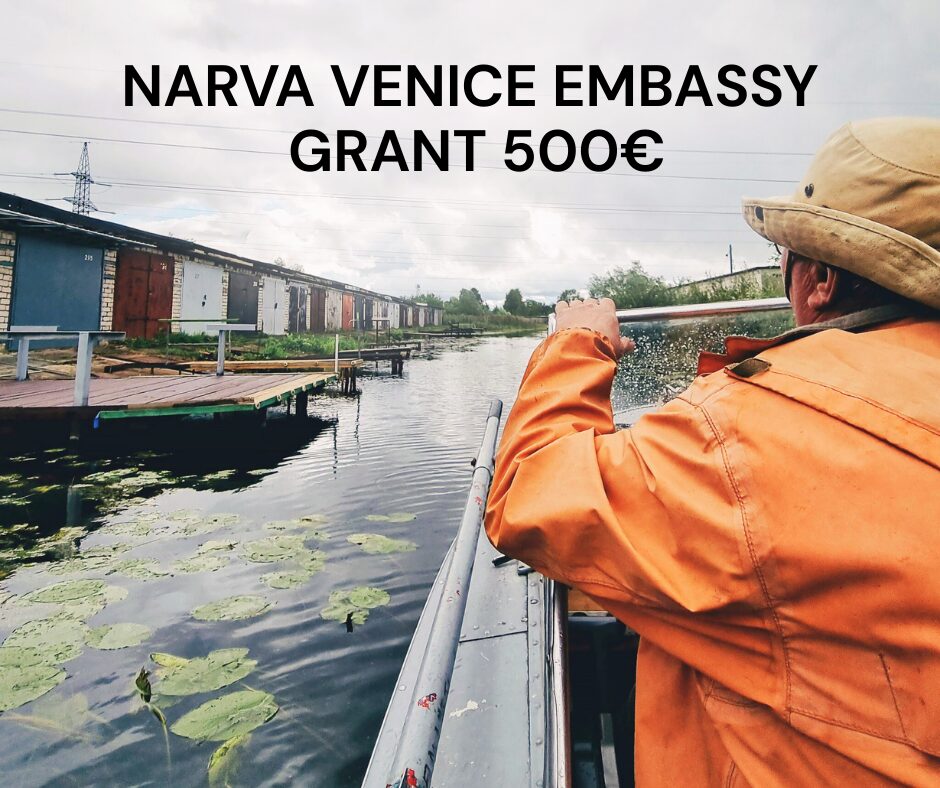For the Kunstraum München, Neringa Vasiliauskaitė is developing a cycle of new site- specific works that tie in with moments of memory from her childhood. The multi-layered and ambiguous works, installed both on the wall and in the room, function as metaphors for repetitive everyday rituals and prompt viewers to examine the transformation of different aggregate states, strands of time, and the emotions and meanings associated with these.
Her large- and small-format objects made of printed textiles on padded backgrounds and covered with epoxy resin and incorporated wooden elements, blur the boundaries between inside and outside and open a dialogue between material (transfer) and repetition, imitation and contradiction. Shiny surfaces are reminiscent of leather upholstery or human skin, like an artificially created body; seemingly solid surfaces become fluid, soft ones cure and harden or reproduce themselves in form and texture.
Neringa Vasiliauskaitė’s artistic practice is influenced by Xenofeminism and the theories of psychoanalyst Didier Anzieu, among others. The artist is interested in how an object takes in its environment and then reflects it back through its surface, its skin, as if it were carrying information from different cultural layers and generations.
Vasiliauskaitė is inspired by the everyday objects and forms she observes in her surroundings, in nature, or in public spaces. Not only does she experiment with materials in open-ended processes that involve dismantling or deconstructing found objects, but she also assembles various often synthetic materials into new surfaces or objects. She incorporates fragments of her personal memories into these and links them to cosmological motifs and archetypal symbols. In combining different surfaces, she reveals the memories and experiences encased within them, be they personal, social, historical, or cultural. Layer by layer, she exposes their various strata and histories, which strips them of their original purpose and allows new unexposed things to be discovered.
Central to her work are the so-called Sekretas, “hidden” or “frozen” found objects encased in glass that reflect a specific moment or day from the past. The term refers to a Lithuanian leisure activity in which children place small objects such as flowers, bottle caps, or other found items under glass or a shard of glass and then cover it with earth or dust. Passersby discover them by chance—or they disappear forever. In this exhibition, the Sekretas serve as a metaphor for the inner spaces of the body, for the boundaries between past and present, and those between the physical, haptic, and digital.
Repetitions & Rituals invites us to explore the subtle boundary between inside and outside and to reflect upon our understanding of identity and our relationship to the digital world. It gives us a new sensibility for physicality and memory by revealing cultural layers and examining them from a subjective perspective.
Program:
Guest lecture and conversation in the exhibition: Saturday, July 13, 2024, 5:00 p.m.
PD Dr. Jörg Sternagel, media philosopher, University of Passau: “Getting to the Bottom of Things – On the Complexity and Ambiguity of Things”
This exhibition was made possible with the support of the Erwin und Gisela von Steiner Foundation and the Alexander Tutsek Foundation.
Neringa Vasiliauskaitė
Repetitions & Rituals
June 20 – July 28, 2024
Curated by Lena von Geyso and Patricia Drück
Kunstraum München
Photography: Thomas Splett, Neringa Vasiliauskaitė

‘Bring me Luck’, 2024. Polyester wadding, printed fabric, epoxy resin, mouth-blown glass, wood, 108 x 74 x 6 cm

‘Bring me Luck’, 2024. Polyester wadding, printed fabric, epoxy resin, mouth-blown glass, wood, 108 x 74 x 6 cm

‘Changing States (3)’, 2023. Printed fabric, padding, aluminum frame, silicone, wood, 170 x 110 x 25 cm

‘Changing States (3)’, 2023. Printed fabric, padding, aluminum frame, silicone, wood, 170 x 110 x 25 cm

‘Changing States (3)’, 2023. Printed fabric, padding, aluminum frame, silicone, wood, 170 x 110 x 25 cm

‘Changing States (3)’, 2023. Printed fabric, padding, aluminum frame, silicone, wood, 170 x 110 x 25 cm

Exhibition view

Exhibition view

Exhibition view

Exhibition view

Exhibition view

‘Foreign Body’. Wood, polyester wadding, epoxy resin, printed fabric, 43 x 18 x 7 cm

‘Foreign Body’. Wood, polyester wadding, epoxy resin, printed fabric, 43 x 18 x 7 cm

‘Gambling’, 2024. Wood, polyester wadding, epoxy resin, printed fabric, 106 x 58 x 37 cm

‘Gambling’, 2024. Wood, polyester wadding, epoxy resin, printed fabric, 106 x 58 x 37 cm

‘Gambling’, 2024. Wood, polyester wadding, epoxy resin, printed fabric, 106 x 58 x 37 cm

‘Parallels’, 2024. Wood, polyester wadding, epoxy resin, printed fabric, mouth-blown glass, print on Hahnemühle paper, walnut, spray paint, 107 x 71 x 8 cm

‘Parallels’, 2024. Wood, polyester wadding, epoxy resin, printed fabric, mouth-blown glass, print on Hahnemühle paper, walnut, spray paint, 107 x 71 x 8 cm

‘Parallels’, 2024. Wood, polyester wadding, epoxy resin, printed fabric, mouth-blown glass, print on Hahnemühle paper, walnut, spray paint, 107 x 71 x 8 cm

‘Parallels’, 2024. Wood, polyester wadding, epoxy resin, printed fabric, mouth-blown glass, print on Hahnemühle paper, walnut, spray paint, 107 x 71 x 8 cm

‘Pea Blossom’, 2024. Wood, polyester wadding, epoxy resin, printed fabric, mouth-blown glass, print on Hahnemühle paper, 44 x 70 x 5 cm

‘Pea Blossom’, 2024. Wood, polyester wadding, epoxy resin, printed fabric, mouth-blown glass, print on Hahnemühle paper, 44 x 70 x 5 cm

‘Pea Blossom’, 2024. Wood, polyester wadding, epoxy resin, printed fabric, mouth-blown glass, print on Hahnemühle paper, 44 x 70 x 5 cm

‘Self-portrait with peas’, 2024. Wood, 44 x 70 x 5 cm and ‘Pea Blossom’, 2024. Wood, polyester wadding, epoxy resin, printed fabric, mouth-blown glass, print on Hahnemühle paper, 44 x 70 x 5 cm

‘Self-portrait with peas’, 2024. Wood, 44 x 70 x 5 cm

‘Stars in the Eyes (1)’, 2024. Wood, polyester wadding, epoxy resin, printed fabric, mouth-blown glass, print on paper, 66 x 41 x 3 cm

‘Stars in the Eyes (1)’, 2024. Wood, polyester wadding, epoxy resin, printed fabric, mouth-blown glass, print on paper, 66 x 41 x 3 cm

‘Stars in the Eyes (1)’, 2024. Wood, polyester wadding, epoxy resin, printed fabric, mouth-blown glass, print on paper, 66 x 41 x 3 cm

‘Stars in the Eyes (2)’, 2024. Wood, polyester wadding, epoxy resin, printed fabric, mouth-blown glass, print on Hahnemühle paper, 36 x 30 x 8 cm

‘Stars in the Eyes (2)’, 2024. Wood, polyester wadding, epoxy resin, printed fabric, mouth-blown glass, print on Hahnemühle paper, 36 x 30 x 8 cm

‘Under the Skin’, 2024. Wood, polyester wadding, epoxy resin, printed fabric, 67 x 31 x 47 cm
